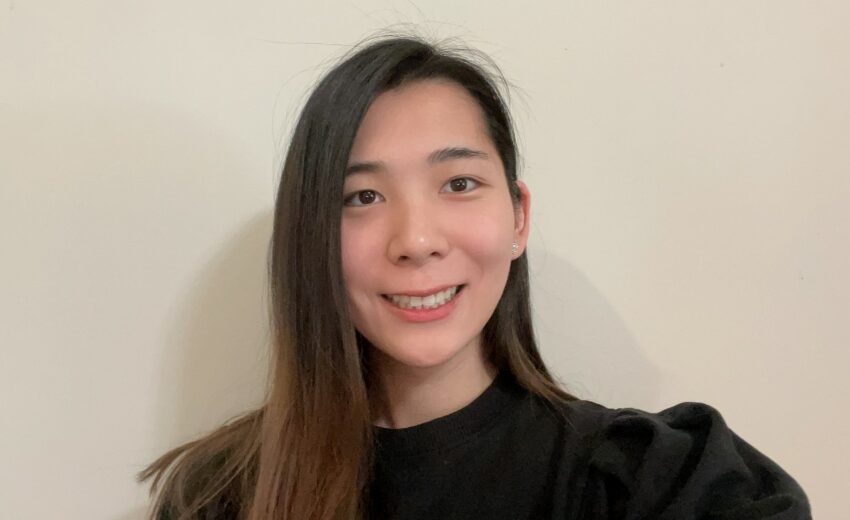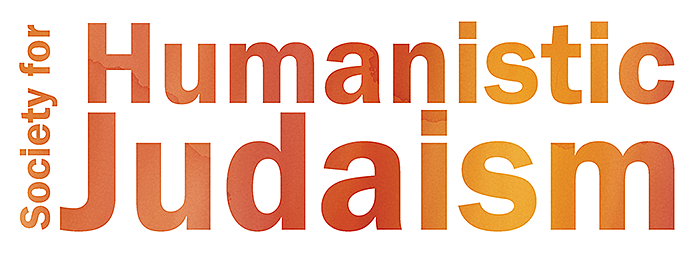
This is a guest post by Ziyi Guan who has chosen to adopt Judaism. Ziyi is a 20-year-old college student living in South Carolina, and studying Biology. She is of Chinese heritage and speaks the Chinese language. She also feels a strong connection to Jewish culture. Today we welcome her as part of the Jewish people and as a member of the Society for Humanistic Judaism. Ziyi has chosen the Hebrew name Gilah, which means joy, as does her Chinese name. Read her powerful statement of intention and connection. Please feel free to leave comments welcoming her.
In life, we are faced with a myriad of decisions, some of which we have control over and others that are beyond our grasp. I firmly believe that faith falls into the latter category. We cannot force ourselves to believe in something, just as we are unable to deceive our own conscience. My exploration and eventual embrace of Humanistic Judaism represent a journey towards aligning my beliefs with my inner honesty.
Rabbi Wine, a key figure in Humanistic Judaism, emphasized that the Jewish people initially identified with family and tribe, with religion emerging later. This resonates with my conviction that genuine faith cannot be an ever-changing, whimsical matter. The idea of someone embracing one belief on Monday and adopting a drastically different one on Wednesday seems implausible to me. I have encountered numerous individuals who identify as Christian but do not concern themselves with the concept of God, nor adhere to the teachings of the Bible. Their conversion to Christianity often stems from a desire for group acceptance or familial pressure, rather than an authentic connection to the faith. This approach, in my view, constitutes self-deception and dishonesty towards one’s family.
Humanistic Judaism resonates with me because it allows me to maintain honesty in my beliefs. I perceive my fellow Jews as an extended family, and I am unwilling to deceive them by professing faith in a deity that I cannot genuinely embrace. By choosing Humanistic Judaism, I am honoring my personal convictions and forging a genuine connection with the concept of honesty. I find that Humanistic Judaism aligns perfectly with my desire to be an active member of the Jewish community while staying honest to my personal beliefs about God. I deeply appreciate how this branch of Judaism welcomes individuals who share a common identity and connection with Jewish culture.
 The term “adoption” in relation to Judaism resonates with me more than “conversion,” as the latter implies a fundamental transformation of one’s character. In contrast, “adoption” signifies a conscious choice to embrace the rich heritage and cultural traditions of the Jewish people without necessitating a drastic change in one’s core beliefs. In fact, I found in the books that even the orthodox and conservative denominations of Judaism have similar ideas as Rabbi Moshe Leib from Hasidic movement says: “To what end can the denial of God have been created? If someone comes to you and asks your help, you shall not send him off with pious words, saying: ‘have faith and take your troubles to God!’ You shall act there were no God, as if there where only one person in all the world who could help this man.”
The term “adoption” in relation to Judaism resonates with me more than “conversion,” as the latter implies a fundamental transformation of one’s character. In contrast, “adoption” signifies a conscious choice to embrace the rich heritage and cultural traditions of the Jewish people without necessitating a drastic change in one’s core beliefs. In fact, I found in the books that even the orthodox and conservative denominations of Judaism have similar ideas as Rabbi Moshe Leib from Hasidic movement says: “To what end can the denial of God have been created? If someone comes to you and asks your help, you shall not send him off with pious words, saying: ‘have faith and take your troubles to God!’ You shall act there were no God, as if there where only one person in all the world who could help this man.”
In conclusion, Humanistic Judaism is the denomination of Judaism that aligns most closely with my personal beliefs and values. I appreciate the open discussions and exploration of the existence of God, as well as the examination of the potential impact a deity might have on our lives. Furthermore, I value the respect for diversity among various faiths and backgrounds that Humanistic Judaism fosters, allowing me, a non-Jewish individual, to immerse myself in the cultural richness of Judaism without facing “condemnation.” Ultimately, my decision to adopt Humanistic Judaism stems from the freedom it grants me to make my own choices and remain true to my authentic self.




What a beautiful statement. Welcome Ziyi!
Welcome to the family Ziyi! I enjoyed reading your post.
So beautifully written! I was born and raised Jewish and I have always been proud of the culture and history, but I’ve wrestled with the reality of the religion. The question of God. Humanistic Judiasiam is to me the best of all worlds. The culture I’ve always loved with the openness and acceptance that’s missing from most organized religions.